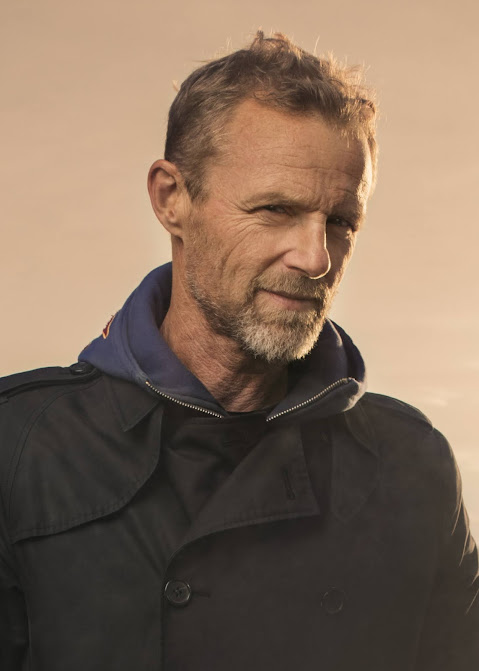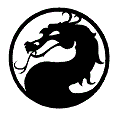 |
| Jo Nesbo |
2020 Retrospective – my four favourite books
Matthew Haynes
December 14, 2020
This year I read around 40 books – it might have been more if some of them hadn’t been so long! And of course I didn’t get an opportunity to do any reading on holiday, because I had no real holiday this year. Poor me. Anyway, here’s a list of the Top 4 books I’ve read this year with links to longer reviews in some cases (I would’ve done a Top 5 if I’d read fifty – blame Stephen / Owen King and Margaret Atwood):
I’d also like to give an honourable mention to Bernard Cornwell because without his Last Kingdom books this year I think it would’ve been much less enjoyable. I am currently reading and thoroughly enjoying his stand-alone novel Redcoat – it could have been number five here, but I’m only about a third of the way through it – watch out for a post about it in a few weeks. Update – yes it should be number 5 on the list – really enjoyed it. Here’s a separate post on it: Bernard Cornwell – Redcoat.
CAUTION: MAJOR Spoilers ahoy!
Gene Wolfe – Peace
Peace is an enigma. A puzzle to be cracked. Perhaps fittingly my copy of the book appeared mysteriously to me at the start of this year having sat forgotten on a bookshelf under the shadows of my desk like a phoenix egg.
Ostensibly it is the story of Alden Weer who harks from a small town in the American Midwest and who lived sometime in the early to mid-20th century. Weer describes various anecdotes from his childhood, early adulthood, and later years. He lives in a complicated house full of rooms copied from various times in his life. Whether this is a construction of his own mind or some kind of afterlife is unclear. There are stories within stories and you have to work hard to peel away the layers and get to the truth of the nature of Weer’s existence.
Here’s a video I found on YouTube that could help explain some of the story:
The problem is that Weer is an unreliable a narrator. The magnitude of his deceptions or self-delusion as his narration slips around in the space-time continuum is the real conundrum of this book. Some laud Wolfe as a genius in this respect. If I was being less generous I might suggest that Wolfe had a bunch of intriguing short stories he wanted to stitch together and ended up making an American quilt that if stared at for long enough with an open mind reveals a hidden shape like those 3D images from the 1980s.
Accidental or thoroughly intentional, regardless of Wolfe’s writing process, the finished result is a masterpiece. If you hear a distant child’s voice in your head calling out about the emperor’s new clothes, just ignore it and enjoy the confusion.
Jo Nesbo – Knife
Please (please please) don’t go any further with reading this if you intend to read the book because, while I’ll try and skirt around most, there’s one major spoiler I really can’t avoid here. Also this book should not be approached without reading The Thirst as a lot of what happened in that book comes back to haunt Hole in Knife. Here’s the author talking about he decided to take Harry Hole into really tragic territory:
Basically Nesbo kills off Rakel, Harry’s wife. Brutal indeed. Hole finds himself in a limbo of not wanting to wake up to the fact his wife is dead but wanting to fill the gap in his memory of the night of the murder. A lot of the story is Hole piecing together the night’s events and explaining why he woke up covered in blood in his flat with no memory of how he got there. It’s a fun puzzle to be solved and one that I put my mind to vociferously as I read the book.
In my opinion Knife is the best book in the Harry Hole series so far. It’s sad that it’s at the cost of a great main character in the form of Rakel, who I had grown to really enjoy as a complex foil to Hole’s destructive tendencies, but that’s probably why the story works so well. The emotions couldn’t be running any higher for Hole or the reader in their quest for justice and an explanation of what really went down that fateful night. It’s also great to see Hole’s relationship with Oleg, Rakel’s son who he treats as his own, remaining strong through the course of the story despite the character being side-lined. It’s the only reason Hole doesn’t let his alcoholism take control entirely and drink himself to death. It’s great stuff.
Homer – The Iliad (translated by Robert Fagles)
This has been on my bibliographic bucket list for decades and my desire to read it was rekindled by Stephen Fries excellent Mythos and Heroes books, which stopped frustratingly short of any Homeric content. So once I’d ploughed my way through the painfully long introduction I waded into the poem itself with much gusto. My first shock was how gory the book is – the anatomically accurate details of the injuries inflicted upon the soldiers is almost like reading a Bernard Cornwell battle scene or the antics of Jack Reacher breaking bones around the back of an American diner. The second thing I noticed was the repetition involved and how each god or main character gets a description like ‘the swift runner’ to help the verse scan. Here’s Derek Jacobi reading an excerpt:
The third thing and I think what struck me the most is how the Greek gods interact with humans and disrupt the battle. They are very much more hands on than a certain other god I might mention. No working in mysterious ways here. If they want to stop a warrior being killed they sweep him off the battlefield and drop him off out of harm’s way. The fourth thing is that there’s no ruddy mention of the Trojan Horse or the death of Achilles – although the prophesy is alluded to numerous times. Quite frustrating. In fact Achilles spends a good portion of the story sulking in his tent. However, on the whole I enjoyed reading The Iliad, Fagles’ translation is very easy to understand and I was pleased to finally scratch the book off my list.
Antony Beevor – D-Day: The Battle for Normandy
The amount of detail in this account of the Allied landings in France that marked the beginning of the end for Nazi Germany is rather overwhelming at times and it is good, perhaps essential, that Bevoor provides glossary, index, maps and photos to supplement the main text.
Anyone with even a passing interest in the Normandy landings would benefit from reading D-Day which is the most thorough account of the planning, preparations, execution and aftermath of the hugely complex Allied plan to take back France. Beevor provides accounts from the other side of the battles – from the German foot soldiers and commanders involved. He also points out where the accounts, from both sides of the war, might be untrustworthy and provides his own opinion on the reasons why certain decisions were made and why certain tactics failed, at times politely debunking the work of other less thorough historians. Here’s a video of the author speaking at the Melbourne Writers Festival:
The real-life vignettes and anecdotes contained within the book paint a picture of how truly awful it must have been for those involved in the events – soldiers from both sides, but also for the resistance fighters, hospital workers, clergy and innocent civilians caught up in the fighting quite literally at times on their doorsteps. I read this book not to celebrate the Allied victory over the Nazis (although I am obviously thankful for that) but to educate myself on why it happened, how it happened and why we should never forget it happened.
About me
My name is Matthew Haynes. I was born in North Wales to English parents with their roots in Cheshire and Lancashire. I studied at Loughborough University where I stayed for far too long. Then I worked in IT for far too long.
I am now a senior communications consultant for a global company – a job in which my interest and skills in writing come in very handy. I live with my partner (a.k.a. ‘Siggy’ for the purposes of this blog) in the East Midlands.
I’m passionate about films and science fiction, and have an eclectic music taste. I used to be a big gamer, but tend to ration myself these days. In my spare time I watch shed loads of films, read a lot of books and write all sorts of stuff.
I have written several books and there is a lot of information about them on this blog as well as my somewhat random musings on film, tv, music, games, books, writing, food, drink and life in general.



No comments:
Post a Comment